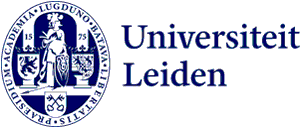
LUC sustainability students transform the Geul river into a living laboratory
LUC sustainability students dive into the Geul river to study rewilding. Through fieldwork and lab research, they explore biodiversity, water quality, and the global lessons hidden in a small Dutch river.
This spring, Earth, Energy and Sustainability students from Leiden University College immersed themselves in the flowing waters of southern Limburg. As part of a long-term river rewilding research project led by Associate Professor Paul Hudson, they were not only studying nature. They were part of it. From walking the banks of the Geul and collecting sediment samples to testing water quality and biodiversity, these students turned the river into a living laboratory.
Researching the Geul river rewilding project
The Geul river, a small meandering tributary in Limburg, has been the focus of rewilding efforts for several years. Local authorities have taken a hands-off approach. 'Letting the river do its thing,' as Hudson describes, but lacked the data to truly understand the impact. That’s where LUC students come in.
'We’re looking at the geomorphic and ecological processes that unfold as the river rewilds,' says Hudson. 'There’s a significant gap in monitoring, and that’s what drives our work.'
Fieldwork: from riverbanks to the laboratory
Travelling in small teams, students conduct sediment sampling, water quality monitoring, and biodiversity assessments. Recent projects have included a capstone thesis on macroinvertebrates in the riverbed. The key indicators of ecological health.
Dressed in waders, students collect invertebrates with nets, return samples to the lab, and carry out identification and analysis. Each student works on a small piece of a much larger puzzle, contributing to a clearer picture of how river rewilding affects biodiversity and environmental resilience.

Insights for global environmental challenges
While the scientific goal is to understand erosion, sedimentation, and biodiversity shifts, the project reflects the mission of Leiden University College to educate global citizens.
'Rivers bring together all the pressures in a landscape: agriculture, land use, climate change, and multiple stakeholders,' Hudson explains. 'It’s confronting and very real.'
Interestingly, hydrological data show no increase in flooding, despite widespread local perceptions to the contrary. Such perceptions, however, have fuelled public support for nature-based solutions like rewilding.
Ecologically, the Geul river has likely reached a new stable state, but biodiversity remains low. The return of fish and beavers is promising, yet macroinvertebrate diversity has not rebounded as hoped.
Learning that travels beyond borders
For LUC students, the experience is both local and global. The challenges of river rewilding in the Netherlands are mirrored in Brazil, India, and beyond. This glocal perspective helps students see the universal nature of environmental issues while developing the skills to address them.
Whether they go on to careers in environmental science, policy-making, or NGOs, these students will take with them the ability to critically assess data and make informed decisions. As Hudson puts it: 'they won’t just take someone else’s word for it. They will know how to ask the right questions. That’s their superpower.
